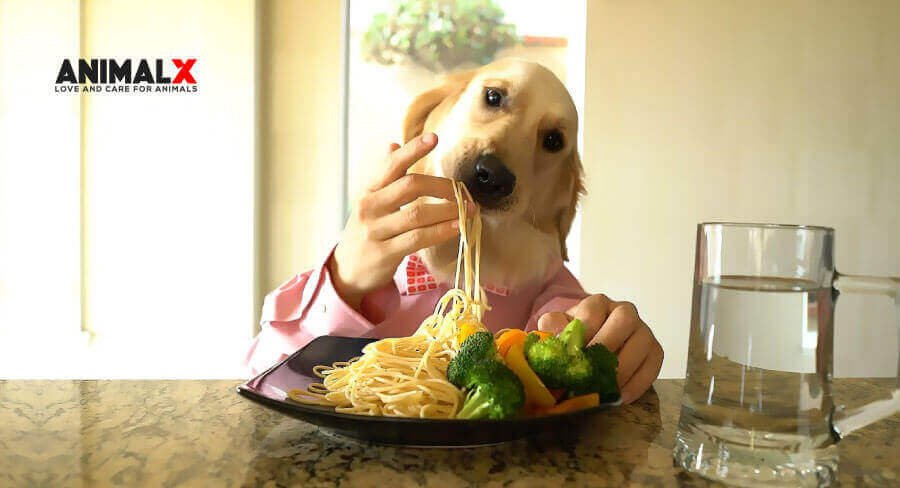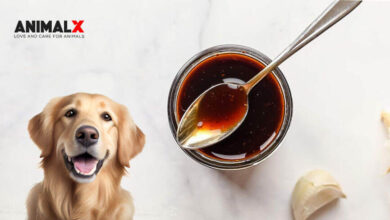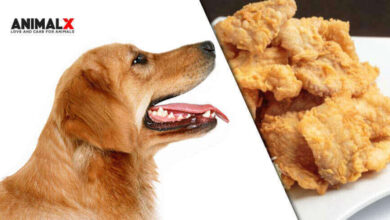Can Dogs Eat Salsa? Is Salsa OK for Dogs? A Great Solution
If someone asks you can dogs eat salsa – is salsa ok for dogs or if this question arises in your mind, then what will happen or what will be the answer. This topic has been discussed today.
Before giving your dog a taste of your salsa, you should know that there is some controversy over whether or not it is safe. While some people suggest that dogs can eat salsa, the ASPCA advises against feeding dogs any type of human food, including salsa.
If your dog eats enough salsa over time, this can cause liver damage. The main ingredient in salsa that can be harmful to dogs is salt. While too much salt can be harmful to humans as well, dogs are more sensitive to sodium than we are. Dogs also do not need to consume as much salt as we do for them to maintain healthy bodily function.
What is Salsa?
Salsa refers to a diverse variety of sauces used. It is a condiment for Mexican and Mexican-American cuisine, such as tacos and burritos. They are typically made from raw or cooked ingredients and are usually served at room temperature. Common ingredients in salsa include chili peppers, cilantro, tomatoes, onions, and lime juice. There are many variations of salsa, each with its own unique flavor profile. Some popular types of salsa include chipotle salsa, Pico de Gallo, corn salsa, black bean salsa, and tomatillo salsa.

What Kinds of Food is Salsa?
Salsa refers to a wide variety of sauces, most of which are typically made with tomatoes, onions, and chiles. As consumer demand for salsa increases, the literal translation of “sauce” becomes more applicable. There is an abundance of sauces available now, many of which cater to different tastes and preferences.
Salsa’s Ingredients and Bad Impact on Dogs
Feeding your dog salsa can be tempting, especially if you have them begging at the table. However, your dog should not eat salsa or any other food that is not for them.
Dogs can eat salsa, but there are some ingredients in it that can cause them to harm if they have too much of it or eat it all the time. This includes:
- CHILIES – These act as a toxin in dogs and can cause abdominal pain, diarrhea, and even kidney problems. Sometimes chilies are responsible for the anal gland problems in dogs. When a dog suffers an anal gland problem, you should offer him the best high-fiber dog foods.
- ONIONS – While small amounts of onions shouldn’t hurt your dog, larger amounts are dangerous and can lead to anemia.
- TOMATOES – While some people claim tomatoes are good for dogs, they are acidic and can actually cause stomach ulcers in dogs.
- CILANTRO – This herb has been known to cause stomach upset in dogs.
- SALT – This is bad for dogs with heart conditions or high blood pressure.
Nutrition Facts of Salsa and Benefits for Dogs
There are some things in salsa that are safe for dogs, and that you can feed them in small amounts. However, there are also things in salsa that should not be fed to dogs at any amount. Before feeding your dog anything besides their regular food or treats, you need to check if it is safe or not.
| Facts | Amount |
|---|---|
| Calories | 12.1 kcal |
| Fat | 0.1 grams |
| Sodium | 234 mg |
| Carbohydrates | 2.4 grams |
| Fiber | 0.6 grams |
| Sugars | 1.4 grams |
| Protein | 0.5 grams |
In addition, salsa contains 8.6mcg of vitamin A and so many other important nutrients that make it a valuable part of a healthy diet.
Final Words – Is Salsa OK for Dogs?
Our world is full of things that we eat, and dogs can be quite curious about them. They may get into the trash or raid your pantry when you aren’t looking and try to taste everything in sight.
One such food is salsa, but dogs should not eat salsa. There are some ingredients that can be harmful to dogs in larger quantities or over time. While a minuscule portion of salsa really shouldn’t damage your dog, some elements can be toxic in bigger doses or over time.
FAQs for Salsa Eating about Dogs
There are included some important and common questions with genuine answers of those. So that dog lovers can understand the subject matter for their dog.
What happens if a dog eats hot salsa?
According to Dr. Waxman, feeding hot sauce to your dog can cause inflammation of the gastrointestinal tract. It includes the mouth, esophagus, stomach, and intestines. Vomiting, diarrhea, and abdominal pain are all symptoms of gastrointestinal inflammation. Some dogs may even develop burns in their mouths or esophagi from eating hot sauce. It is best not to give your dog any hot sauce, or any other food that is too spicy for them.
What to do if my dog ate salsa Spicy?
No, sharing your food with pets – especially spicy foods – can often cause more problems than you may realize. Spicy foods can be toxic for dogs and can cause stomach problems like pain, diarrhea, and gas. They can also make your dog excessively thirsty, leading to vomiting. Be sure to keep all foods away from your pet that could potentially be dangerous or harmful. Vomiting is almost common in cats. If you have a cat, and if he vomits, you can offer him the best dry cat foods to prevent vomiting.
Can dogs eat salsa Verde?
It is generally best not to feed your dog any salsa if you can avoid it. While there are some ingredients in salsa that are fine for dogs to eat, such as tomatoes and cilantro, there are also some that can be toxic for dogs and cause them some fitness difficulties, for example, garlic and onions. Some of the symptoms a dog might experience after eating salsa with toxic ingredients include drooling, diarrhea, vomiting, weakness, and even seizures. If you think your dog may have eaten something harmful, please contact your veterinarian immediately.
Is salsa Verde bad for dogs?
Green chili is a food item that is enjoyed by many people in the United States. It is made from green chili peppers, which are a variety of chili pepper that has a mild flavor. While green chili is generally considered to be healthy for people, it is not toxic to dogs if they eat it. In fact, green chili can even be beneficial to dogs, as it contains nutrients like vitamin C that are good for their health.
Can dogs eat salsa chips?
Many people share their food with their dogs, and this is usually a good thing. Dogs can eat most human foods, but there are some exceptions. Tortilla chips are not generally safe for dogs to eat, as they contain oils and spices that can be harmful if ingested. Some other dangerous foods for dogs include chocolate, onions, garlic, and grapes. It’s best to consult with a veterinarian before giving your dog any kind of human food, just to be sure.
Can dogs eat tomatoes and Salsa?
Because of the extra salt and sugar, as well as any artificial flavors or other ingredients, tomato sauces, ketchup, soups, or juices are not particularly good for dogs. Even though tomatoes themselves are okay for dogs to consume, soups and sauces are commonly seasoned with onions and garlic which are toxic to dogs. So it’s best to stick to fresh tomatoes instead.
Are onions bad for dogs?
Onions contain toxins that can be poisonous to dogs, even in relatively small quantities. The American Kennel Club advises owners that feeding their pets 100g of onion per 20kg of the dog’s weight can lead to toxic effects. This means that a small dog would only need to eat a little more than half an ounce of onion to potentially cause illness or death. Symptoms of onion poisoning in dogs include reddened eyes, excessive tearing, diarrhea, vomiting, and gas. If you believe your dog has eaten onions, contact your veterinarian immediately.
How much onion is toxic to dogs?
Onion is a poisonous vegetable for dogs. The American Kennel Club reports that as little as 100g of onion can have toxic effects on a dog, which means that even a small amount of onion can be deadly to a small dog. Onion poisoning in dogs often results in gastrointestinal problems and Heinz body anemia, a condition where red blood cells are destroyed.
Did the dog eat salsa with onions?
Onion toxicity can be a serious risk for small dogs. Even a relatively small amount of onion can be deadly. The American Kennel Club recommends that owners avoid feeding their dogs onions, as even a trace amount can be toxic. Onion toxicity occurs when the compound allyl propyl disulfide is absorbed into the dog’s system. This toxin damages the red blood cells, causing them to burst. Symptoms of onion toxicity include vomiting, diarrhea, weakness, and anemia. If you believe your dog has eaten onion, contact your veterinarian immediately.
Can dogs eat tortillas?
Flour tortillas are unlikely to harm your dog if eaten in moderation. However, some pets have wheat allergies or sensitivities to grains and may thrive on a grain-free diet. Although flour tortillas don’t offer much nutritional value, they can be a source of carbohydrates, which can be beneficial for some dogs.
These are the open explanation about the answer to the starting question can dogs eat salsa – is salsa OK for dogs for sincere dog lovers.



